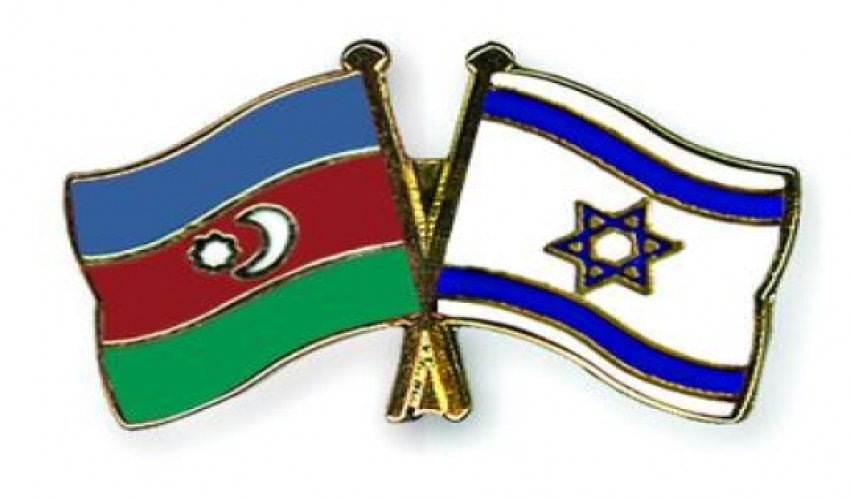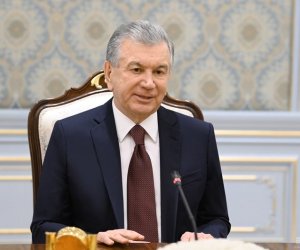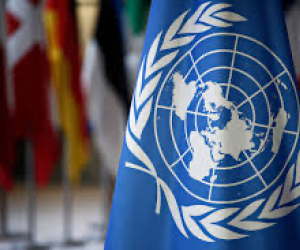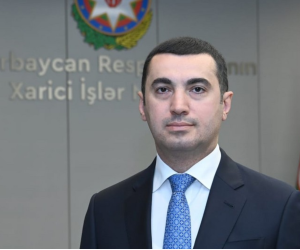Azeri-Israel ties glimmer of hope, model for Muslim-Jewish peace

By Maayan Jaffe
With the recent, tragic terror attack by Hamas in Jerusalem we become increasingly disillusioned about the prospects for peace in the Middle East. From one war to another in Israel. Chaos on all of its borders. Heightened anti-Semitic attacks by Muslims against Jews in Europe and now in the U.S. But inside the mess there is an almost striking glimmer of hope. And that is in the relationship between Israel and the Muslim-majority country Azerbaijan.
In mid-September, Israeli ambassador to Azerbaijan, Rafi Harpaz, met Azerbaijan ambassador to the U.S., Elin Suleymanov, for a tour of the Jewish East Coast. The pair traveled together in New York, Washington, D.C., and Philadelphia, among other places, to talk about the close ties between the Jewish State and the Muslim country. Azerbaijan is located in the Caucasus region, bordered by the Caspian Sea to the east, Georgia and Russia to the north, Iran to the south, and Armenia to the southwest and west.
The unlikely couple, each with their heavy accents and deep opinions, allowed for an interesting dialogue. Both countries feel equally close and supportive of the U.S., while simultaneously struggling with a degree of disenfranchisement. The struggles between Prime Minister Benjamin Netanyahu and U.S. President Barack Obama have been flung across media outlets over the past few years. In his talks, Suleymanov noted how frequently, incessantly and, according to him, unfairly, the country is singled out for criticism on human rights grounds by U.S. media and the administration, too.
Azerbaijan’s track record is, of course, not flawless and its civil society would certainly benefit from more openness and reforms. Still, the fact that Washington is keen on criticizing Azerbaijan much more than other nations in the region is hard to miss. Even criticism of U.S. arch-enemy Iran is now less frequent than that aimed at America’s ally Azerbaijan. Moreover, the U.S. seems to be content with Azerbaijan’s neighbor, Armenia’s tightening domestic repression and its total surrender of sovereignty to Russia by joining the Putin’s Customs Union on humiliating terms. Amazingly, some of Azerbaijan’s harshest critics apparently spend most of their time publishing regular articles in leading publications claiming that the nation has no significance, a contradiction in terms given the amount of the coverage it gets as well the dedication of its detractors. On this count too, Azerbaijan and Israel are alike.
For Azerbaijanis, all this justifiably appears as a well-coordinated negative campaign. And since this is so contrary to the U.S. national interest, it also looks suspiciously beneficial to Moscow and Tehran. Given Israel’s experience with well-funded campaigns against the Jewish state, such suspicions shouldn’t be all that surprising.
Azerbaijan, if not a “start-up nation”, is clearly a pioneer society. The Azerbaijan Democratic Republic (ADR), established in 1918, was the first secular Muslim-majority country built on the principles of a Western-style democracy with a constitution that granted equal rights to all citizens, including voting rights for women.
ADR in its first form existed for only 23 months, as it was invaded and incorporated into the Soviet Union by the Red Army under the name Azerbaijan SSR. On the verge of the Soviet Union’s collapse, ethnic strife in Nagorno-Karabakh and Moscow’s indifference to the conflict resulted in calls for independence and secession, which culminated in Black January. Subsequently, ADR’s flag was restored as the state flag, and, following that, the modern Republic of Azerbaijan emerged as a successor to Azerbaijan SSR on Oct. 18, 1991.
Throughout its history, the people of Azerbaijan have remained open, and that includes not only to women and the West, but also to the Jews. Harpaz says there is no anti-Semitism in Azerbaijan.
Suleymanov said there were always Jews who served in parliament and that one of the country’s first ministers of health was a Jew.
Currently, Azerbaijan supplies Israel with 40 percent of its oil. And when the last war with Hamas erupted and many countries stopped flying planes to Israel, Azerbaijan continued.
Ambassador Harpaz said that U.S. and Israel benefit from Azerbaijan standing strong, while Suleymanov noted that the West often misunderstands the need to maintain Azerbaijan’s secular and open society. This means, among other things, opposing radical groups and preventing young girls from being forced to wear hijab until they can make their own choices. Yet, these efforts to maintain a more open society are criticized as political pressure despite the lessons that should have been learned in recent years around the word.
Israel Defense Minister Moshe Yaalon has visited the country and these two unlikely allies enjoy bilateral security relations. In 2012, Israel and Azerbaijan signed an agreement according to which state-run Israel Aerospace Industries would sell $1.6 billion in drones and anti-aircraft and missile defense systems to Azerbaijan. So, why is it so hard to appreciate a Muslim country where the Israeli Defense Minister visits and is publicly and warmly welcomed by the president?
In an era when it seems the Jews are increasingly isolated and that Israel is often on its own in the battle for the eradication of Muslim extremism, it is comforting to know that Muslims and Jews can get along and that Israel has a partner in Azerbaijan.
Note: Jaffe is senior writer/editor at Netsmart and the former editor-in-chief of the Baltimore Jewish Times. She also served as a breaking news editor at the Jerusalem Post.
Bakudaily.Az
Latest news 




































 Photo
Photo 



 Video
Video 

